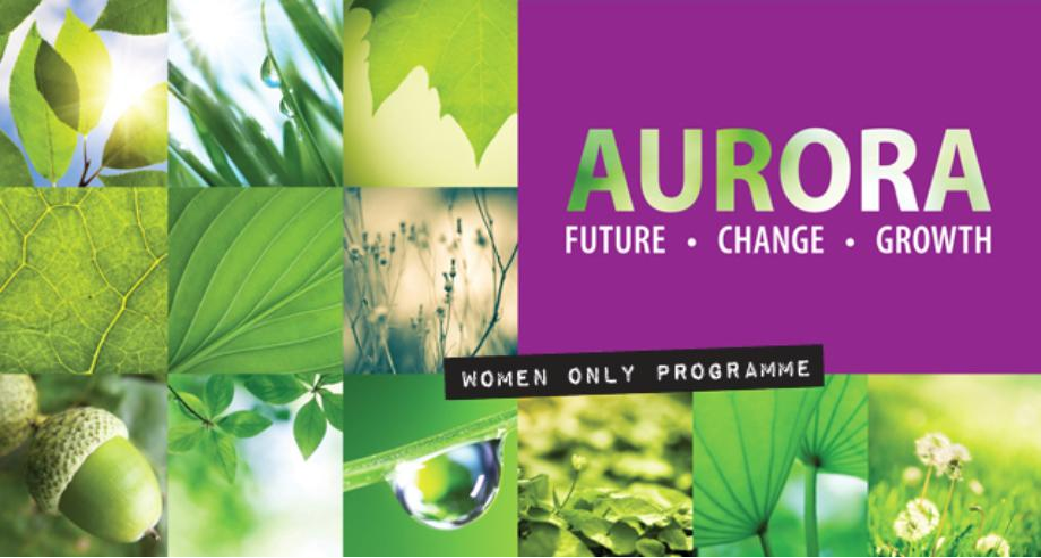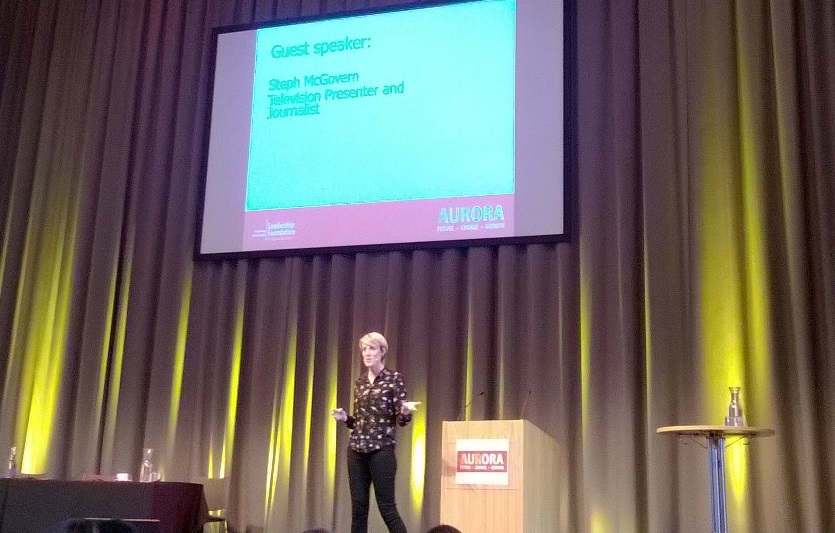by Jing Shen
Aspiring to be an academic leader, in addition to taking on more leadership responsibilities I have actively sought to further develop my leadership skills. So when I learnt about the nomination for the prestigious Aurora Programme, I put myself forward. Through internal competition, I gained a university funded place on the programme’s 2016/2017 cohort.
It is a well-known fact that women are under-represented in senior leadership positions in the higher education sector both within the UK and internationally[1],[2]. The Aurora Programme is the Leadership Foundation for Higher Education’s response to the issue. It is a women-only national leadership development programme, aimed at women in higher education in their mid-career who have the potential to move into leadership positions in the future. The programme lasts for a year and consists of five development days, self-directed learning using online resources and mentoring. The five development day workshops each address different leadership-related topics: Identity, impact and voice, Power and politics, Action learning set, Core leadership skills, and Adaptive leadership skills. Before attending each of the development days, participants are required to complete a set of pre-work, which includes reading materials, videos, and case studies. As part of the programme, each Aurora participant also has a mentor from their own organisation to support their development. In my cohort, the development day workshops occurred between November 2016 and March 2017.
The first development day, “Identity, impact and voice”, was a great opening to the programme. The theme of the workshop revolved around understanding what leadership meant to each individual and helping us find our own identities in leadership. The day was led by an experienced leadership training coach, who was inspirational and knowledgeable. The materials presented and discussions on the day opened my mind about what being a leader really means, and made me think about my personal qualities that give me my unique identity as a leader.
The second development day, “Power and politics”, gave a fresh new perspective on what power and politics meant in the work place. I was made to realise that having power and getting involved in politics at work were more about collaboration, negotiation and influence with the aim to achieve a state of mutual benefit. The discussions and presentations on the day highlighted the importance of emotional intelligence and made me more aware of the various possible connections to power and influence through different people and groups in a work organisation.
The third development day, “Action learning set”, was a cross-institutional action learning activity, intended to share real-life workplace challenges and issues in confidence with members of a peer group. On the second development day, participants were required to sit at designated tables and the members of each table were to work together on the “Action learning set” on the third development day. In my group of seven, a venue for the day was negotiated and decided to be Glasgow Caledonian University. On the day, each of us brought to the group a challenging work-related issue we were currently facing. Each participant outlined their issue briefly, followed by open questions from other members to probe, clarify and expand on the issue, without offering help or advice. The purpose was to empower the issue-owner to be the architect of their future actions and ultimately find a solution to their problem. I found this day was particularly refreshing and useful because the different perspectives brought by those who were not related to my own organisation stimulated broader thinking about my issue.
The fourth development day, “Core Leadership Skills”, led us through a journey of re-discovering the role of vision, strategy, and values (both organisational and personal) in leadership. Throughout the course of the day, we had the opportunity to practise skills in motivating and influencing people and negotiating mutually acceptable outcomes with other participants. We were also made aware of some unconscious bias and stereotypes, and collectively we established an action plan to address these in our own leadership development.
The fifth and final development day, “Adaptive Leadership Skills”, encouraged us to adapt our leadership styles to the challenging environment we face. A number of practical tips were introduced on how to make ourselves heard, how to perform courageous conversations and how to deal with challenging situations in the work place. The BBC presenter and journalist, Steph McGovern gave an excellent talk on “Navigating where there is no route map”, which was a fantastic way to end the programme.
I found the development days very intensive and stimulating. They were packed with keynote speeches, group activities and discussions, and networking. Having completed the Aurora programme, I am now equipped with a number of practical tools that I will start consciously incorporating into my everyday work. I have been left with many ideas and reflections from the experience, which will take time to digest and implement, in addition to a new supportive network in the form of the members of my group from “Action learning set” day. We felt a strong connection between us and decided to keep the group alive after completing the programme by keeping in touch and meeting up to see how we progress in our respective careers.
I now have a better understanding of the complex and interconnecting nature of higher education institutions; have become more aware of my leadership style and identity; and feel more confident in overcoming obstacles on my career path. As a proud member of the Aurora cohort, I would recommend this programme to any female colleague, for the extremely supportive environment provided by thousands of inspiring women in higher education and the realisation that you can be a leader at any stage of your career path when your voice is being heard and you are making a positive impact.
[1] https://www.lfhe.ac.uk/en/research-resources/research-hub/2013-research/women-and-higher-education-leadership-absences-and-aspirations.cfm
[2] https://www.theguardian.com/education/2013/apr/22/university-jobs-not-being-advertised


